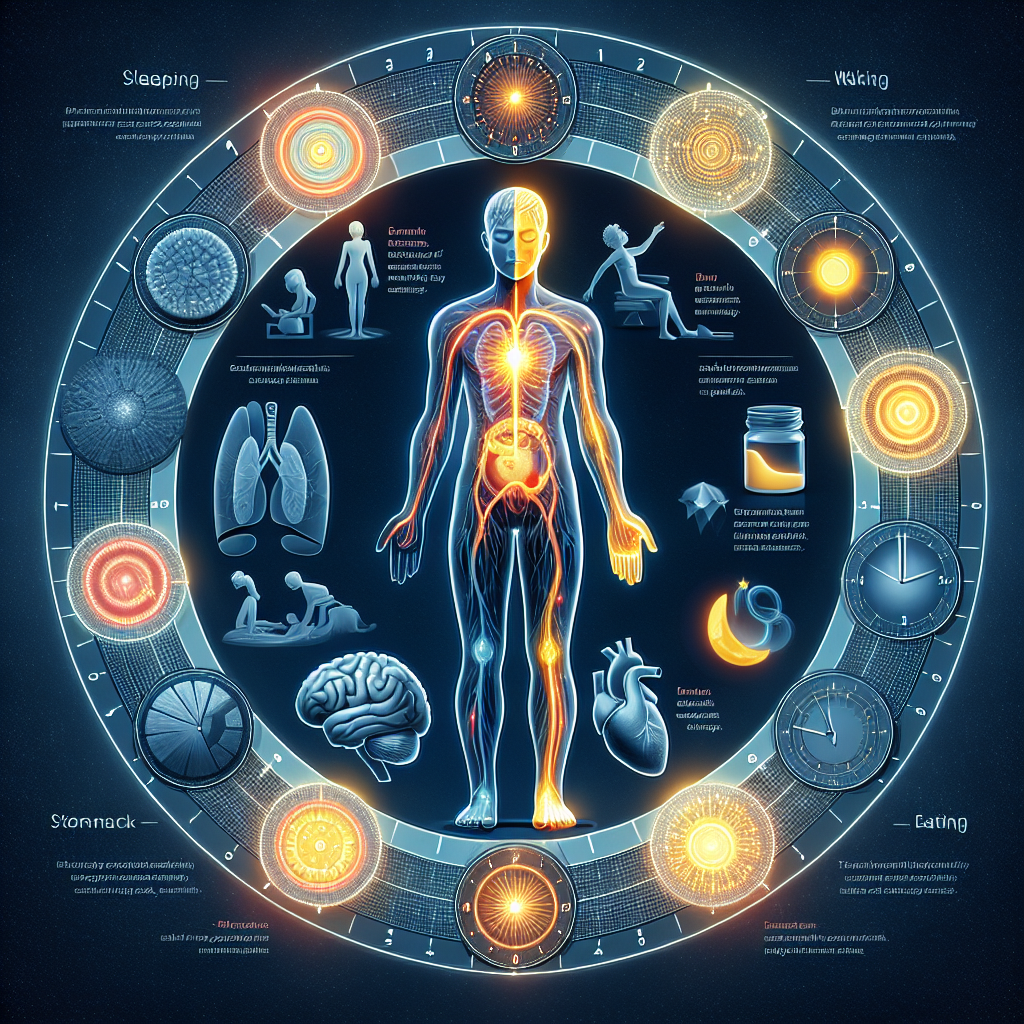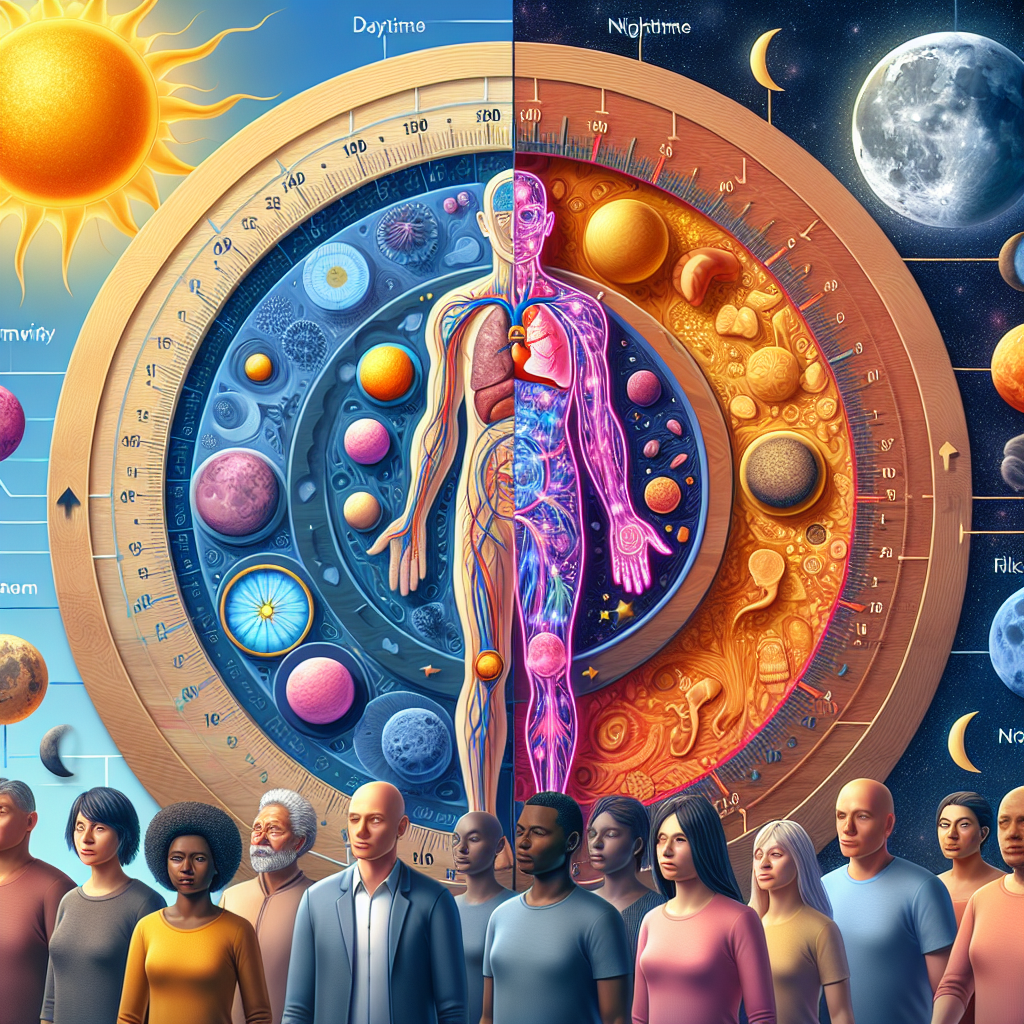Why Circadian Rhythm Matters More Than Ever

Discover why your Circadian Rhythm matters more than ever. Learn how it impacts your health, productivity, and overall well-being. Don’t wait, start prioritizing your body’s natural clock today. Visit My Vibrant Vitality now.
Understanding the Importance of Circadian Rhythm in Modern Life
The circadian rhythm, a natural, internal process that regulates the sleep-wake cycle and repeats roughly every 24 hours, is a fundamental aspect of human health and well-being. In our modern, fast-paced world, where the boundaries between day and night are often blurred by artificial light and the demands of a 24/7 society, understanding and respecting our circadian rhythm is more important than ever.
The circadian rhythm is not just about sleep. It affects nearly every aspect of our physiology and behavior, from our body temperature and hormone levels to our cognitive abilities and mood. It is a finely tuned biological clock that has evolved over millions of years to align our bodies with the Earth’s rotation. When this rhythm is disrupted, it can have profound effects on our health and well-being.
Research has shown that chronic disruption of the circadian rhythm, such as that caused by shift work, jet lag, or irregular sleep patterns, can increase the risk of a wide range of health problems, including obesity, diabetes, cardiovascular disease, and certain types of cancer. It can also affect our mental health, contributing to disorders such as depression and anxiety.
Moreover, our circadian rhythm influences our cognitive performance and alertness. When we are in sync with our natural sleep-wake cycle, we are more alert and perform better on cognitive tasks during the day. Conversely, when our circadian rhythm is out of sync, our cognitive performance can suffer, making us more prone to errors and accidents.
In recent years, there has been a growing recognition of the importance of circadian rhythm in our daily lives. Many people are now trying to live in harmony with their natural sleep-wake cycle, adjusting their schedules to match the rhythm of the sun and prioritizing good sleep hygiene. This includes practices such as maintaining a consistent sleep schedule, avoiding exposure to bright light in the evening, and creating a sleep-friendly environment.
Technology is also playing a role in helping us understand and manage our circadian rhythm. For example, many fitness trackers and smartwatches now include features that monitor sleep patterns and provide feedback on how to improve sleep quality. There are also apps that use artificial intelligence to analyze sleep data and provide personalized recommendations for optimizing sleep and circadian rhythm.
However, while these tools can be helpful, it’s important to remember that our circadian rhythm is a complex biological process that can’t be fully controlled or manipulated. It’s influenced by a variety of factors, including our genes, age, lifestyle, and environment. Therefore, it’s crucial to listen to our bodies and respect our natural sleep-wake cycle, rather than trying to override it.
In conclusion, the circadian rhythm is a fundamental aspect of our health and well-being that is often overlooked in our modern, fast-paced society. By understanding and respecting our natural sleep-wake cycle, we can improve our health, boost our cognitive performance, and enhance our overall quality of life. As we continue to learn more about the circadian rhythm and its importance, it’s clear that this biological clock matters more than ever.
The Role of Circadian Rhythm in Health and Wellness

The circadian rhythm, often referred to as the “body clock,” is a natural, internal system that regulates the sleep-wake cycle and repeats roughly every 24 hours. It can refer to any biological process that displays an endogenous, entrainable oscillation of about 24 hours. These
Circadian Rhythm: Its Impact on Sleep and Productivity
The circadian rhythm, often referred to as the “body clock,” is a natural, internal system that regulates the sleep-wake cycle and repeats roughly every 24 hours. It can refer to any biological process that displays an endogenous, entrainable oscillation of about 24 hours. These